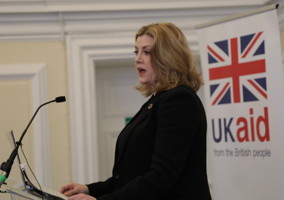More safeguarding expertise is needed at trustee level to drive higher safeguarding standards in the charity sector, experts have said.
Speaking to Charity Finance magazine, safeguarding experts said trustees had a responsibility to better scrutinise their charity’s practices instead of seeing it as a “tick-box exercise”.
Karen Walker-Simpson, head of safeguarding at Comic Relief, said that safeguarding must be embedded in practice.
She said: “There is a need to move beyond a tick-box approach to compliance in favour of one which focuses on increasing understanding and influencing actual lived practice.”
Renuka Jeyarajah-Dent, director of operations and deputy CEO at the children’s charity Coram, said charities should avoid the temptation to predominantly appoint commercially-minded trustees instead of those with safeguarding experience.
She said: “They have the skills in bringing in money but are more distanced from child services.”
Policing and safeguarding adviser Peter Spindler, who previously led child abuse investigations for the Metropolitan Police, said: “The background of the Oxfam trustees seemed to be from big business.
“If you haven’t got someone from the public sector or with a safeguarding background, there will be less understanding at board level.”
'Better response needed'
Spindler said trustees and sometimes chief executives needed to be more responsive to safeguarding officers when they raised an issue.
He said: “Staff responsible for safeguarding get it, but it is a wake-up call to trustees in terms of governance.
“One [safeguarding officer] I have spoken to sees themselves as being treated as an irritation by senior colleagues.”
However, he said that the expectations placed on trustees are “very significant” and charities need to ensure their responsibilities seem “so scary”.
He said: “If you start hanging trustees out to dry, and develop a blame culture, this does further damage. Empower and equip.”
Marcus Erooga, associate editor of the Journal of Sexual Aggression, said that while some charities may be confident that they have implemented adequate procedures, that doesn’t mean it is working in practice.
He said: “Everyone at senior management level may think that they have got it sorted and breathe a sigh of relief, rather than seeing it as a real live thing. Getting it to the next level is the challenge.”
The Charity Finance safeguarding roundtable was sponsored by Farrer & Co. The full article can be seen here.
Related articles












